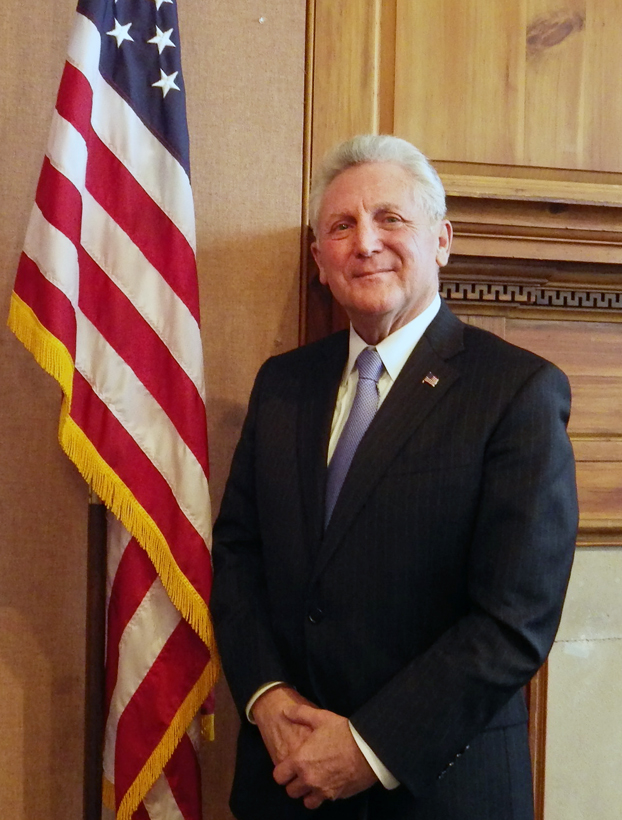Norwalk-based marketing agency Scrum50 was recently awarded the No. 1,530 ranking of Inc. Magazine”™s list of the 5,000 fastest growing private companies in the nation. This marked the first time that Scrum50 received recognition on this list ”“ and, according to Michael LeBeau, managing partner and co-founder, this was also the first time that the agency sought this accolade.
“It’s a pretty straightforward process,” LeBeau said. “They put out an entry kit and you supply all sorts of good information. Then, they crunch it and keep it a big surprise until the last second and in the big reveal.”

LeBeau and Chris Parker co-founded Scrum50 in 2014 in response to their mutual dissatisfaction with how marketing agencies functioned.
“We would get together occasionally and talk about the trials and tribulations of the agencies that we were working at,” he recalled. “Most notably, how long it took to get stuff out the door and how much money we were charging clients to get work out the door. As we were literally talking over beers, we were thinking: Is there a different model? Is there a better way of doing this?”
LeBeau added that he was also “doing a lot of reading on lean manufacturing, agile marketing practices, agile software development ”“ and there were some nuggets in there that made a lot of sense for agencies to adopt. Namely, instead of building everything from start to finish and taking months to do so and then releasing it and hoping it works, let’s do little pieces at a time and expose those little pieces to consumers and customers along the way and get validation that our messaging is right, our campaigns are right, and they resonate and they connect.”
LeBeau also brought another aspect to his work: He graduated from college with twin bachelor degrees in marketing/advertising and psychology. He believed the psychology studies gave him an advantage in his career path.
“If you think about psychology, as it relates to marketing, they really go hand in hand,” he said. “The more we can understand what motivates people, what makes them tick, how they process information and what their needs are, the better we can deliver solutions that meet those needs. I initially was going to be a psych major, but then I got turned on to marketing and advertising. And I”™m like, ”˜You know what? I”™m already way down the road on this psych thing. Let me pivot and also do this.”™”
LeBeau is also an advocate of prioritizing customer service, and the Scrum50 website quotes a Forbes study that found 89% of companies believed they deliver exceptional customer experiences but only 8% of their customers felt they were receiving a high quality of service. LeBeau theorized that too many customers are disconnected from recognizing what their customers want from them.
“I think at a fundamental level they are not talking to customers enough,” he said. “They”™re sitting in conference rooms trying to figure things out on their own, coming up with big processes, and then rolling it out and thinking that they”™re smarter than their customers. Whereas the companies that are really getting it well, start with a customer and engage them in the process, making sure that they really hear and empathize with what they’re doing. And then they create programs and solutions accordingly.
“It always surprises me,” he said. “How many really smart companies don’t talk to their customers very often, and don’t give them a chance to voice their likes and dislikes, and then take that learning and improve whatever they’re doing with that information?”
Six years into business, Scrum50”™s client list includes Benjamin Moore, MondelÄ“z International, Subway and Newman”™s Own.
LeBeau is a strong believer in making a lasting good impression, and he credited 95% of his new business coming from chief executives and chief marketing officers who are familiar with his work. He acknowledged this is helpful because the other 5% of his new business comes from “the old school, knocking on doors and trying to get exposure ”“ but I’m finding that that’s becoming harder and harder if you don’t have a network that you can rely on and who likes you.”
And what are Scrum50”™s plans for an encore after its Inc. recognition?
“I think an encore is just continued growth with great brains that like and trust what we’re doing and give us more responsibility to do more interesting things,” LeBeau said. “Instead of an encore, I think of it rather as just a continual evolution.”





















